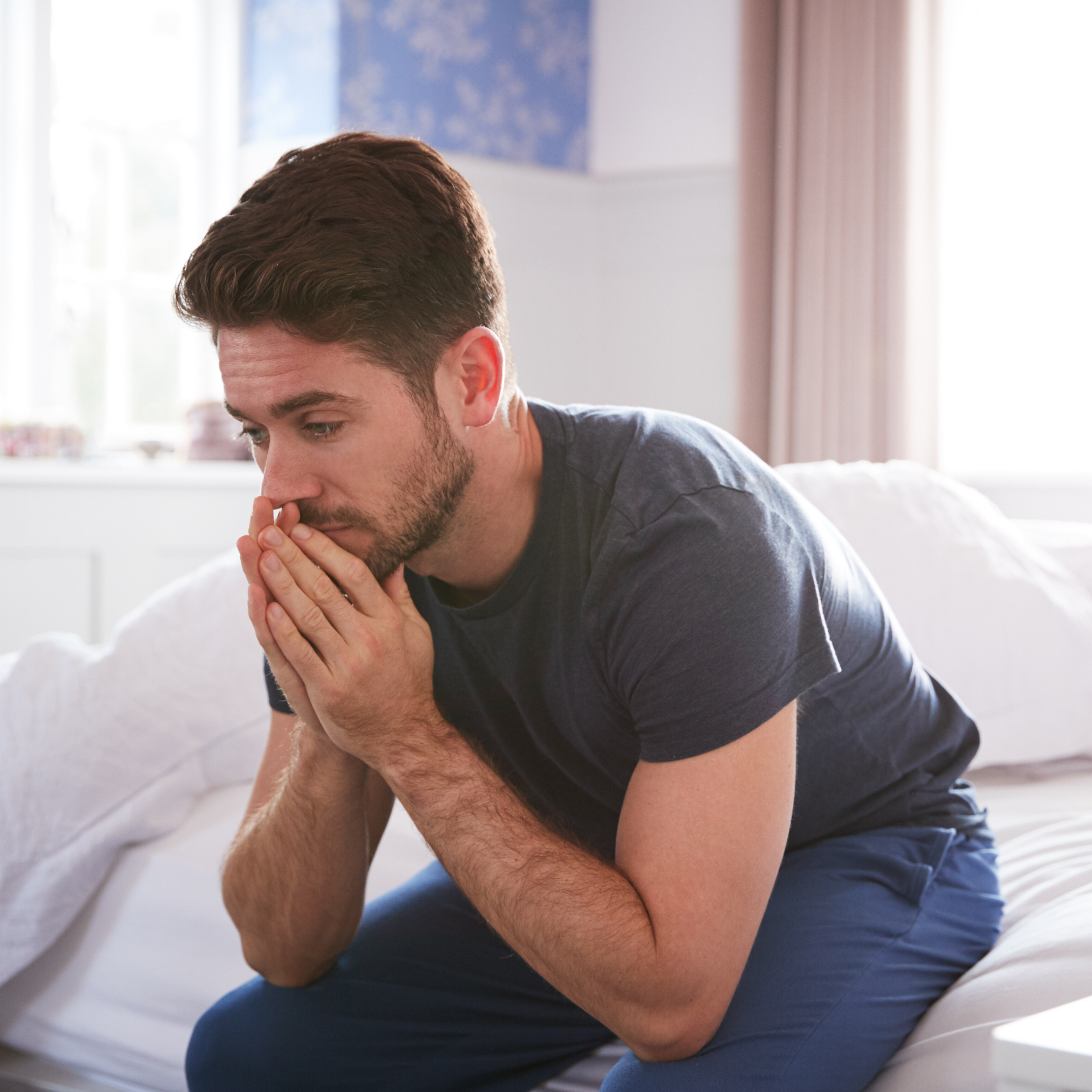6 Lifestyle Changes to Manage Anxiety
I have always been an anxious person. I vividly remember singing the hymn “It is Well with My Soul” to myself in an attempt to calm myself down when I was only 10 years old. My anxiety came and went throughout high school, college, and during my first few years of marriage, but was what I considered “manageable.” However, the arrival of my daughter in 2016 sent me spiraling into postpartum anxiety. Added to that, two months after her arrival, my son was hospitalized with a seizure condition.
The combination of these two experiences caused my anxiety to skyrocket. One moment I would feel fine, the next (seemingly out of nowhere), it was as if someone had kicked my legs out from under me. I could go from feeling like a great mom to feeling incapacitated in a matter of minutes. Anxiety took control of my life.
Anxiety is–Unfortunately–Common
Did you know that anxiety disorders are the most common mental illness in the United States? According to the Anxiety and Depression Association of America (ADAA) (n.d.), 40 million adults in the United States age 18 and older are impacted by anxiety, which amounts to 18.1% of the population every year. Additionally, while anxiety is highly treatable, only 36.9% of those suffering receive treatment (ADAA, n.d.).
Unfortunately, adults aren’t the only ones with anxiety; for many people, like myself, the condition starts early. The Center for Disease Control (CDC) reports that 7.1% of children aged 3-17 years (approximately 4.4 million children) have been diagnosed with anxiety (CDC, 2019; Ghandour, Sherman, Vladutiu, Ali, Lynch, Bitsko, & Blumberg, 2018). Additionally, it was found that as children get older, it is more common for them to receive diagnoses of depression and anxiety (CDC, 2019; Ghandour et al., 2018).
Treating Anxiety Medically
When it comes to anxiety, there are different medical treatments available.
– One suggested treatment for anxiety is talk therapy or psychological counseling. This method is typically utilized on a short-term basis; the therapy/counseling focuses on teaching those with anxiety “specific skills to directly manage [their] worries and help [them] gradually return to the activities [they’ve] avoided because of anxiety” (Mayo Clinic, 2017).
– Another method used to control anxiety is medication. Different categories of medications are used to treat anxiety, including antidepressants, buspirone, and (in limited circumstances) benzodiazepines (Mayo Clinic, 2017).
Treating Anxiety through Lifestyle Changes
Simple modifications to your lifestyle can also be anxiety-reducers. If you suffer from anxiety, give these six lifestyle changes a try to help reduce your anxiety and improve your overall well-being.
1. Stay active. Keeping physically active not only helps your body stay healthy; it also releases endorphins–your “feel good” hormones. These can help improve your overall mood, increase your self-esteem, and improve your self-confidence. Additionally, if used in a social setting, exercise can enhance social connections and relationships.
2. Sleep. Making sleep a priority can help manage stress and anxiety. Sleeping poorly can have a negative impact on your mood, partially because the mood-supporting neurotransmitters in your brain are replenished when you sleep. Sleep helps maintain a balanced brain, and in turn helps alleviate anxiety.
Interestingly, “research shows that sleep-deprived people have a much stronger tendency to classify neutral images as ‘negative,’ so that even everyday items can seem more menacing and contribute to anxiety” (University of Minnesota, 2016).
3. Ready to relax? Relaxation exercises are another useful method for reducing anxiety. Visualization techniques, positive thinking, meditation, and prayer have all been proven methods to ease anxiety. Additionally, breathing techniques are helpful for those who experience stress and anxiety. (Check out our FREE PRINTABLE detailing some specific exercises to try!)
4. A healthy diet. Eating a healthy diet, that is, adding vegetables, fruits, whole grains, and fish to your diet, may be linked to anxiety reduction. Drinking enough water and cutting out sweetened beverages (such as sweetened tea, soda, and fruit punch) have also been shown to contribute to good mental health.
5. Eliminate substances. Caffeine, nicotine, alcohol, and recreational drugs are all known to worsen anxiety. Eliminating these substances can help lessen overall anxiety.
6. Connect with God. Lastly, spending time with your Heavenly Father is a good way to reduce anxiety and stress. In 1 Peter 5:7, we are advised to, “Cast all your anxiety on Him because He cares for you.” God does not want us to hurt or feel anxious! We are reminded again and again throughout the Bible to share our problems with God because He cares for us (Psalm 34:4; Proverbs 3:5-8; Proverbs 12:25; Luke 12:22-26; Philippians 4:6-7, just to name a few!)
If you suffer from anxiety, what are some tangible steps you can take to move you closer to mental health? Share at least one idea in the comments below!
References
Anxiety and Depression Association of America. (n.d.) Facts and statistics. Retrieved from https://adaa.org/about-adaa/press-room/facts-statistics
Center for Disease Control. (2019). Data and statistics on children’s mental health. Retrieved from https://www.cdc.gov/childrensmentalhealth/data.html
Ghandour, R. M., Sherman, L. J., Vladutiu, C.J., Ali, M.M., Lynch, S. E., Bitsko, R. H., & Blumberg, S. J. (2018). Prevalence and treatment of depression, anxiety, and conduct problems in U.S. children. The Journal of Pediatrics.
Mayo Clinic. (2017). Generalized anxiety disorder. Retrieved from https://www.mayoclinic.org/diseases-conditions/generalized-anxiety-disorder/diagnosis-treatment/drc-20361045
University of Minnesota. (2016). What lifestyle changes are recommended for anxiety and depression. Retrieved from https://www.takingcharge.csh.umn.edu/what-lifestyle-changes-are-recommended-anxiety-and-depression



